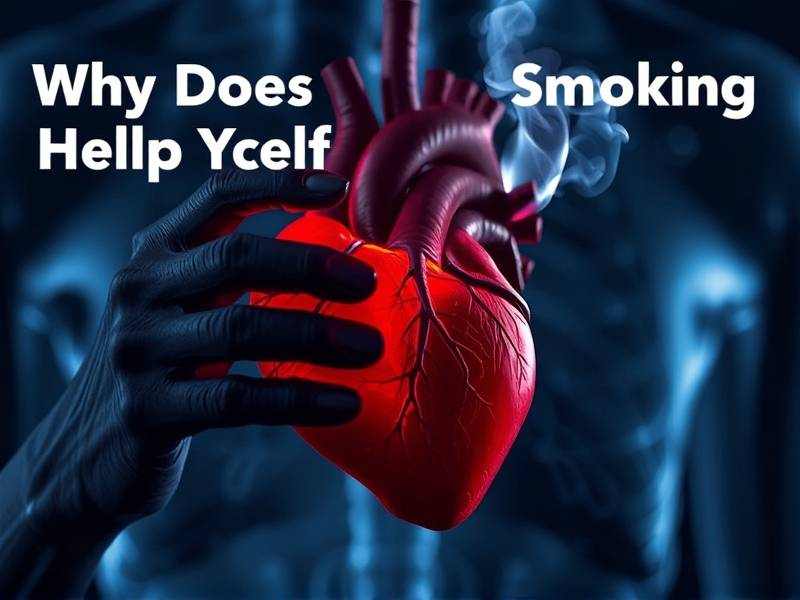Why Does Quitting Smoking Help Your Heart?
Why Does Quitting Smoking Help Your Heart?
Introduction: The detrimental effects of smoking on the heart are well-documented. Quitting smoking is a crucial step towards improving cardiovascular health. In this article, we will explore why giving up the habit can benefit your heart and how it can lead to a healthier life.

-
Reduced Risk of Heart Disease Smoking is a leading cause of coronary heart disease, which is characterized by narrowed or blocked arteries that prevent blood from flowing to the heart effectively. When you quit smoking, your risk of developing heart disease begins to decrease over time. According to the American Heart Association, within one year of quitting, your risk drops by 50%, and it continues to decline with each passing year.

-
Improved Blood Flow Nicotine in cigarettes causes your blood vessels to narrow, reducing blood flow throughout your body, including the heart. When you quit smoking, your blood vessels gradually return to their normal size and function, leading to improved blood flow and oxygen delivery to the heart muscle.
-
Lower Blood Pressure Smoking contributes to increased blood pressure due to nicotine's effects on the nervous system and the constriction of blood vessels. Quitting smoking can help lower your blood pressure, reducing the strain on your heart and lowering the risk of hypertension-related complications.
-
Reduced Risk of Heart Attack The American Cancer Society states that within two years of quitting smoking, your risk of having a heart attack decreases significantly compared to continuing smokers. Over time, as your body recovers from the damage caused by smoking, this risk continues to decline further.
-
Enhanced Heart Function Quitting smoking improves lung capacity and reduces respiratory problems associated with smoking. This improvement in lung function translates into better oxygenation of the blood and enhanced cardiac output, ultimately benefiting heart health.
-
Lower Risk of Stroke Smoking increases the risk of stroke by raising blood pressure and contributing to clot formation in arteries leading to the brain. By quitting smoking, you reduce this risk significantly, protecting yourself from potentially life-threatening consequences.
Conclusion: Quitting smoking is a powerful step towards improving cardiovascular health and reducing the risk of various heart-related conditions. The benefits are numerous and can be experienced within just a few years after quitting. If you're struggling with quitting smoking, seeking support from healthcare professionals or joining support groups can provide valuable guidance and encouragement on this life-changing journey towards a healthier heart.
Remember that every puff counts – take control of your health today by making the decision to quit smoking for a happier and healthier future!
